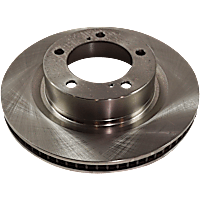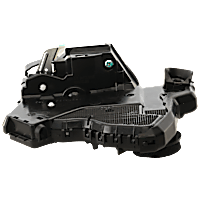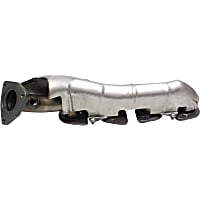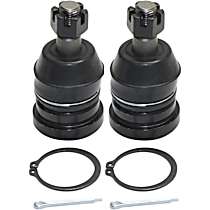The Toyota Tundra is one of the most popular trucks on the market today. But no matter how reliable this truck is, it is far from perfect. Whether you’re eyeing a brand-new or used Tundra, it’s helpful to know the common issues you may encounter as it racks up mileage.
Are Toyota Tundras Reliable?
The Toyota Tundra has an excellent reputation in terms of reliability. It grabbed the top spot in JD Power’s 2019 dependability study, making it the highest-ranked vehicle in its segment. RepairPal, on the other hand, gave the Tundra a reliability score of 4.0 out of 5.0, ranking it 8th out of 32 pickups. Older models have also received good customer ratings. Cars.com gave the 2000 Toyota Tundra a reliability rating of 4.4 out of 5 based on consumer reviews.

The Tundra is an excellent choice for drivers who need a sturdy workhorse. With proper maintenance, it can go up to 300,000 miles or approximately 15 years before needing major repairs.
Toyota Tundra Common Problems
Just like any other truck, the Tundra has its fair share of problems. Let’s take a look at some of the issues you may have to deal with as your pickup ages.
Brake Issues
A truck with brake problems will have a steering wheel that feels shaky while stepping on the brake pedal. In the case of one owner who drives a 2017 Toyota Tundra, the problem was solved by rotating the rotors. However, if you suspect that your brake rotors are warped, they need to be checked by a mechanic immediately.
Toyota Tundra brake problems—especially those concerning the rotors—shouldn’t be taken lightly. Remember that faulty brakes compromise your safety and that of other people on the road. Get your pickup fixed right away by removing the faulty part and installing a high-quality rotor replacement.
Fuel Pump Problems
Fuel pump malfunction is a common issue among Toyota vehicles. In fact, a recall affecting 5.8 million Toyota and Lexus models was released in 2020. If your Tundra was manufactured from 2018 to 2020, it’s likely included in this recall.

The first recall was issued in January 2020 because of DENSO fuel pumps that were causing vehicles to stall. Toyota requires the replacement of the faulty pump in affected models.
Door Lock Malfunction
People who drive a 2014 Toyota Tundra have also complained about faulty door locks. The common fix for this issue is replacing the locks or the actuators. Some owners have even had to get their power lock actuator replaced twice in a month.

Air Induction Pump Malfunction
Although complaints about this issue are few, it’s considered one of the worst because repair costs could set you back by as much as $3,000. If connecting an OBD scan tool to your 2012 Tundra retrieves a P0148 error code, your truck may have a faulty air induction pump. This code is typically triggered by problems related to fuel delivery and pressure.

Premature Transmission Failure
Premature transmission failure was also considered one of the worst problems for the 2012 model year. Repairs for a failed transmission can cost you thousands of dollars in parts and labor. In worst cases, owners had to rebuild their transmission to get their truck back on the road.
Radio Malfunction
Drivers who own a 2008 Toyota Tundra report problems with the operation of their radio. Common complaints include malfunctioning volume and Bluetooth controls. Luckily, these can be solved by getting a high-quality aftermarket radio replacement for your Tundra.
Secondary Air Injection Pump Failure
A significant number of complaints about the 2007 Toyota Tundra describe problems with the operation of the air injection pump in the engine. According to RepairPal, this issue affects 11 model years of the Tundra. Some of the confirmed fixes include getting a new air injection pump or an emission control valve replacement.
It’s important to have your vehicle checked as soon as you suspect that your truck has a failing injector pump. A secondary air injection pump failure may cause poor fuel economy, resulting in increased emissions and other drivability issues.
Exhaust Manifold Failure
Ticking noises have been observed in 2006 Toyota Tundras with problems in the exhaust manifold. These sounds are more noticeable while the engine is cold. This symptom is a tell-tale sign of a leaking exhaust manifold. This problem affects trucks manufactured from 2000 to 2012.
Lower Ball Joint Issue
Toyota had to issue two separate recalls for 533,000 trucks and SUVs because of faulty lower ball joints. If you’d like to know if your Tundra was included in any recall, you may visit the National Highway Traffic Safety Administration (NHTSA) website or check out our guide here.
The bad ball joints in the front suspension were prone to premature wear, causing difficulty steering and other suspension problems. Needless to say, this problem could lead to accidents on the road.
Rusted Frame Rails
The 2000 Toyota Tundra has few problems compared to other model years. However, some owners have reported rust damage on their truck’s frame rails. In some cases, it’s more practical to replace the frame instead of attempting to repair a rusted part.
Remember that all the issues listed above aren’t exclusive to the Tundra. They may persist in any other pickup—especially as the truck gets older. The Tundra, though far from perfect, is still one of the best in its segment with proper care and maintenance.
Products Mentioned in this Guide
Any information provided on this Website is for informational purposes only and is not intended to replace consultation with a professional mechanic. The accuracy and timeliness of the information may change from the time of publication.


 Brake Disc
Brake Disc
 Door Lock Actuator
Door Lock Actuator
 Exhaust Manifold
Exhaust Manifold
 Ball Joint
Ball Joint














